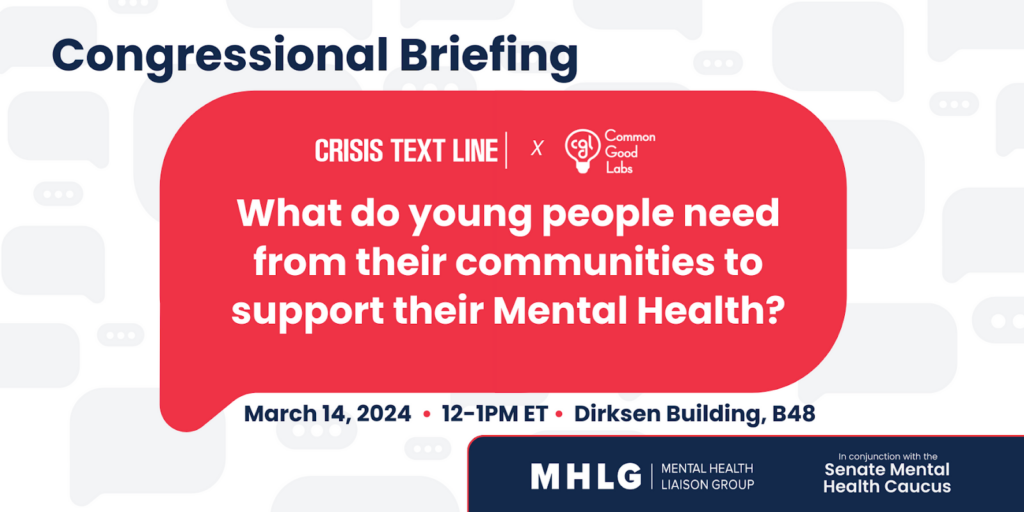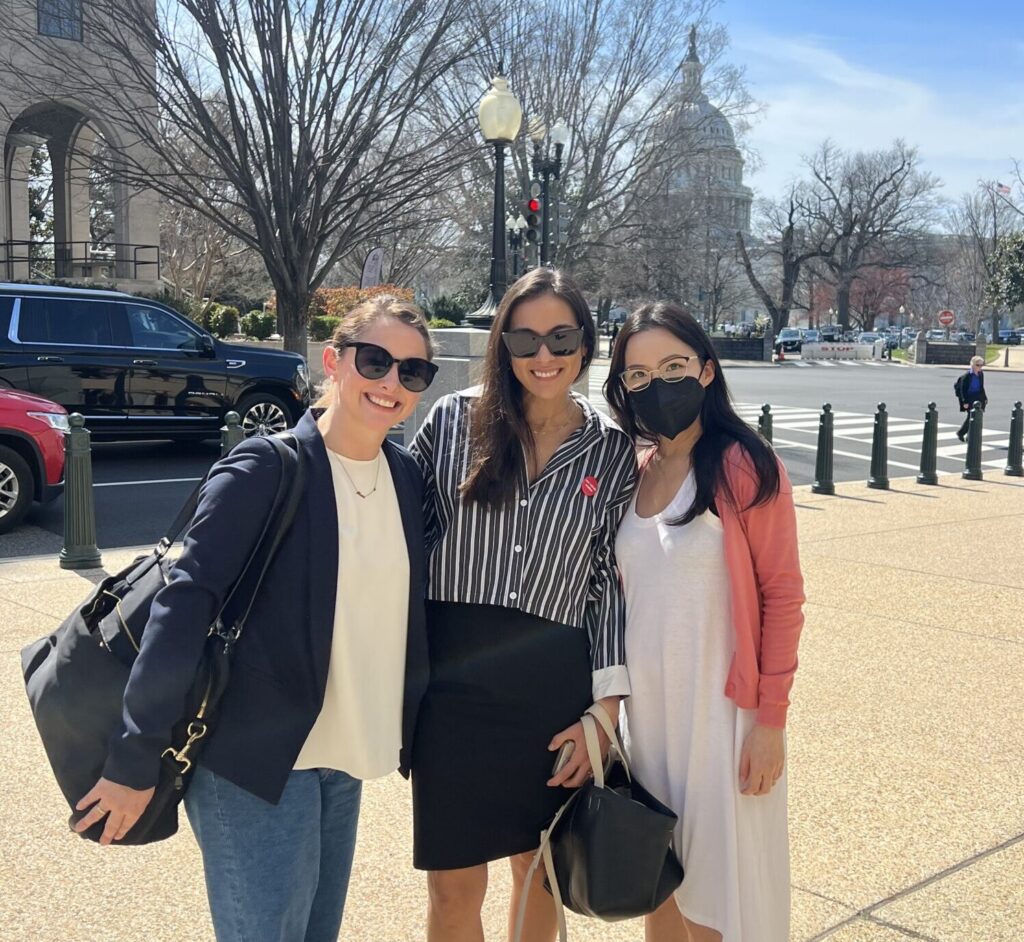
Our Minds Matter attended the Congressional briefing “What do young people need from their communities to support their mental health?” hosted by Crisis Text Line and Mental Health Liaison Group in conjunction with the Senate bipartisan Mental Health Caucus on Thursday, March 14th.
Senator Thom Tillis (R-NC) and Senator Alex Padilla (D-CA), members of the Mental Health Caucus, shared thoughtful remarks about their commitment to youth mental health. In a time of so much divisive politics, it was refreshing to be in a bipartisan space where everyone was united around the need to build better systems and programs to bolster the mental well-being of youth!
During the briefing, researchers Lili Torok and Rhett Morris presented groundbreaking insights from Crisis Text Line and Common Good Labs, drawing on data from more than 87,000 anonymized conversations that have taken place via Crisis Text Line. Student panelists, Noe Guiterrez Jr. and Saanvi Arora, further brought the research to life by sharing their personal perspectives.
The research, drawn from the responses of youth in crisis, identified six key resources communities must provide to help young people take care of their mental health:
- Opportunities for social connection
- Engagement in music, writing, visual, and performing arts
- Mental health services
- Exercise and sports programs
- Books and audiobooks
- Outdoor spaces and nature
This data validates the critical role of school-based mental health resources, such as Our Minds Matter clubs. The importance of social connectedness was especially relevant to our work, and confirms our own research from the 22-23 School Year, which found the number of meetings teens attended predicted their level of social connectedness, which, in turn, led to higher scores on other mental health markers such as healthy habits, help-seeking, prosocial skills, and positive well-being.
While the data on teen depression and suicide is disheartening, this research gives us hope — it shows the way forward. We know how policymakers, mental health professionals, organizations, and community leaders can help to ensure that adequate support systems and mental health resources are in place to safeguard the mental well-being of the younger generation.
We can invest in the well-being of youth by:
- Creating policies prioritizing mental health initiatives supporting young people
- Providing opportunities for social connection through clubs, classes, work, and at-home
- Engaging youth in art and movement-based programs
- Improving access to culturally relevant mental health services and spaces
- Inspiring youth to read and connect with nature
We must change our culture and our values if we want teens to be motivated to prioritize their mental health over their smartphones and social media. Let’s build a society that values connection over convenience and well-being over profit.
Thank you to our partners at Crisis Text Line for fostering this dialogue and collaboration!
Read the full groundbreaking research report here.
If you or someone you know needs support, text MIND to 741741 to connect to a live volunteer Crisis Counselor.
